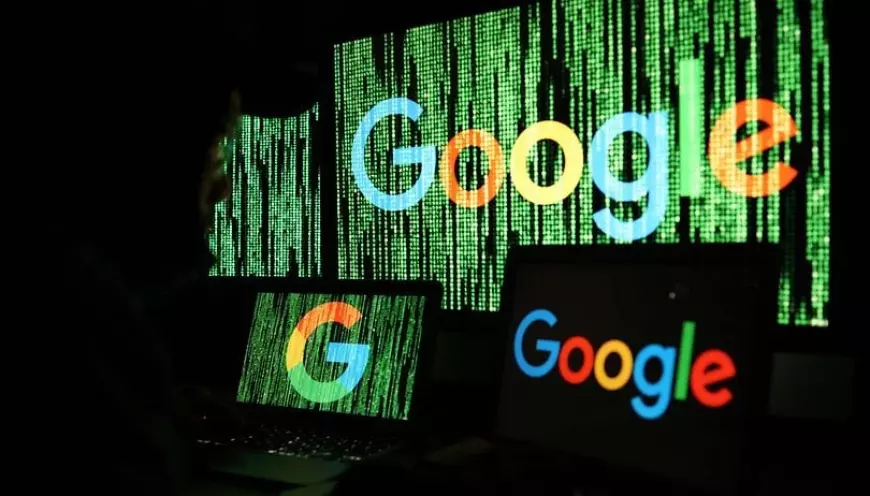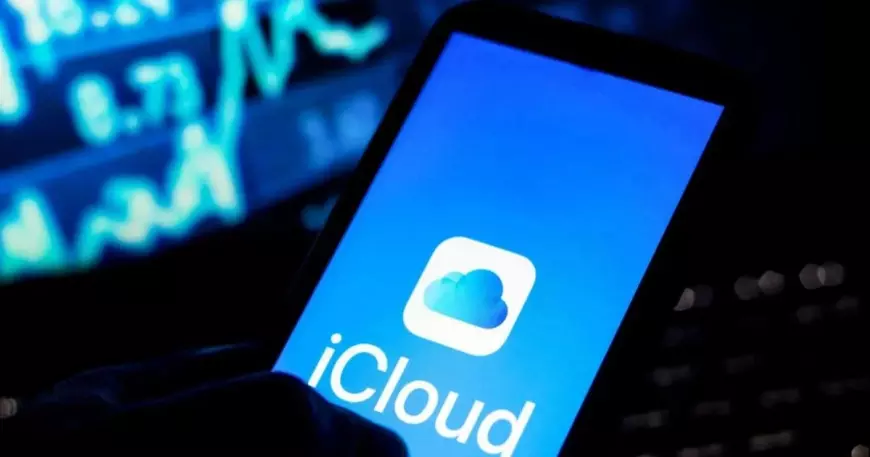Former Google engineer nabbed for allegedly stealing AI secrets for Chinese rivals
Former Google engineer caught stealing AI secrets for Chinese competitors. Learn how to protect your intellectual property.

A former Google engineer, Linwei Ding, was arrested in California for allegedly stealing over 500 files containing artificial intelligence trade secrets from the company. Prosecutors claim that Ding, a 38-year-old Chinese national who began working at Google in 2019, uploaded these trade secrets from his Google-issued laptop to personal cloud storage accounts. The stolen documents were described as essential components of Google's AI infrastructure. The indictment alleges that Ding carried out these actions over a one-year period from May 2022 to May 2023.
Ding was apprehended in Newark, California, and faces four charges of theft of trade secrets. If found guilty, he could be sentenced to a maximum of 10 years in prison and fined up to $250,000 for each count. Google spokesperson José Castañeda emphasized the company's rigorous measures to prevent the theft of confidential information and trade secrets. Following an investigation, Google promptly reported the case to law enforcement, expressing gratitude to the FBI for assistance and pledging continued cooperation.
This incident occurs amid increased tensions between the United States and China regarding the rapid growth of artificial intelligence. In response to fears of China utilizing AI for military advancements, the Biden administration implemented a ban on exporting advanced AI chips created by American firms, such as NVIDIA, to China. FBI director Christopher Wray emphasized that these charges underscore the extensive efforts by Chinese-affiliated entities to pilfer American innovation. The theft of innovative technology and trade secrets poses significant risks to jobs, the economy, and national security, Wray stated.
The indictment provided intricate details about the nature of the offense. According to the charges, Ding allegedly copied information from Google's files into Apple Notes on his laptop, subsequently converting them to PDF files and uploading them to his personal Google account to elude detection by Google's data loss prevention systems. Additionally, he handed his Google badge to another employee in California to create the illusion of working from Google's offices in the state while engaging in activities for rival companies in China. Prosecutors claimed Ding played a role in securing funding for a Chinese company, where he served as its chief technology officer. In the past year, he also founded another AI company in China, assuming the role of CEO.
This marks not the initial instance of the United States detaining a Chinese national for pilfering trade secrets from American companies. Over the past few years, the US attorney's office in San Francisco filed charges against three former Apple employees accused of purloining trade secrets associated with the Apple Car project, which the company has since terminated, and funneling them to Chinese companies. In the previous month, one of these engineers received a six-month prison sentence and was required to pay almost $150,000 in fines.

A recently filed class action complaint against Apple in a Northern California court alleges that the company is employing unfair practices to maintain iCloud's dominance in the cloud storage market for its devices. The complaint claims that Apple has imposed specific technological restrictions on the types of files other cloud providers can host, creating an environment where only iCloud can offer full-service storage to Apple device users. This alleged strategy allows Apple to charge higher fees without facing significant competition, as per the complaint.
A potential class action, led by Hagens Berman, aims to include tens of millions of US customers, alleging that Apple has created conditions favoring iCloud as the dominant choice for cloud storage on its devices. While users of iPhones and iPads can store certain file types with non-Apple providers, iCloud is the exclusive host for items such as app data and device settings. The complaint contends that Apple's restrictions are arbitrary and hinder competition, leaving users with the less appealing choice of managing multiple cloud storage accounts or relying on iCloud for full-service convenience.
The class action complaint against Apple contends that the company does not dominate the cloud storage market due to superior product quality but rather by manipulating the competitive landscape, ensuring that only iCloud prevails. While the case has not yet received class action status, individuals interested in potential eligibility can seek more information by completing a form on the Hagens Berman website.
A National Guardsman, who leaked US defense secrets on Discord, agrees to a 16-year plea deal.
Jack Teixeira, the Massachusetts Air National Guardsman charged with leaking classified defense secrets on Discord, has changed his plea to guilty. The 22-year-old withdrew his not-guilty plea, opting for a guilty admission that could result in a prison term of around 16 years. Facing potential imprisonment of up to 60 years if convicted at trial, Teixeira pled guilty to six counts of "willful retention and transmission of national defense information" under the Espionage Act. Arrested in April last year, he is accused of sharing classified documents on a Minecraft-focused Discord server in late 2022, leading to their dissemination on various platforms.The leaked documents included information about the hacking of an unidentified American company by a foreign adversary, as well as details about a plot to attack US troops serving abroad. Authorities did not find evidence of deliberate espionage motives and did not accuse Teixeira of whistleblowing similar to Edward Snowden. Prosecutors believed his actions were driven by a desire to gain status with online friends. The Department of Justice reportedly agreed to reduced sentencing due to a lack of evidence for more malicious motives. A hearing in September is scheduled to finalize the deal, with sentencing guidelines ranging from 11 to over 16 years in prison. Teixeira's lawyer emphasized his client's immaturity and plans to argue for the lowest sentence, describing him as "very much a kid." An investigation of Teixeira's messages revealed an obsession with weapons, mass shootings, conspiracy theories, and proving he was knowledgeable.
This is the view of reentering Earth's atmosphere from the perspective of a space capsule.
Incredible footage released by Varda Space Industries provides a first-person perspective of a space capsule's return journey to Earth. The video captures the moment of separation from its carrier satellite in orbit, the fiery reentry, and the bumpy landing on the surface. Varda's W-1 capsule achieved a historic landing at the Utah Test and Training Range on February 21, marking a first for a commercial company. The capsule spent approximately eight months in low Earth orbit, awaiting government approvals for landing on US soil. Varda shared raw footage of the atmospheric reentry on X and a 28-minute video detailing W-1's complete journey home on YouTube.
Varda, in collaboration with Rocket Lab, is focused on developing mini-labs capable of manufacturing pharmaceuticals in orbit, specifically the HIV drug ritonavir. The W-1 capsule was connected to Rocket Lab's Photon satellite "bus," which provided power, communications, and altitude control for the capsule during the mission. Photon successfully positioned the capsule for reentry, ultimately burning up in Earth's atmosphere. With the returned capsule, ritonavir crystals grown in orbit will undergo analysis by Improved Pharma, a pharmaceutical company based in Indiana, as reported by Ars Technica.
Apple has taken the step of banning Epic Games' developer account, labeling the company as "verifiably untrustworthy." This move follows the ongoing legal battle between Apple and Epic Games over App Store policies and fees. The decision signifies a significant escalation in the conflict between the two tech giants.
Epic Games' plan to launch its own iOS storefront in the EU faces a major setback as Apple has terminated its developer account, branding the company as "verifiably untrustworthy." This action comes just a day after the iOS 17.4 update allowed third-party app stores in Europe to comply with the Digital Markets Act (DMA). Epic argues that the ban prevents the development of the Epic Games Store for iOS, terming it a "serious violation of the DMA." The ongoing conflict between Epic and Apple intensifies with this latest development. Apple's decision appears rooted in concerns about Epic's compliance with contractual agreements for a developer's account, despite having granted one earlier this year.
What prompted this change? Tim Sweeney, the CEO of Epic Games, strongly criticized Apple's alterations to the EU App Store, labeling them a "devious new instance of malicious compliance." According to Sweeney, while Apple technically adheres to the DMA, it undermines third-party app stores significantly, describing it as an "anticompetitive scheme" with added fees and taxes. Though Sweeney's claims are not impartial, they highlight concerns about Apple's requirements for third-party app stores, including adherence to strict rules, payment of fees, and financial institution verification. Developers also face a Core Technology Fee for high download numbers and a commission on transactions ranging from 15 to 30 percent.
After Tim Sweeney criticized the new app store rules, Apple's Phil Schiller sought written assurance from Epic Games, asking why they should trust Epic. Sweeney responded affirming Epic's commitment to comply with current and future agreements with Apple. However, Apple was dissatisfied and subsequently terminated Epic Games' developer account. Epic views this as an attack on its competitiveness and sees it as retaliation for criticizing Apple's practices. Apple attributes the action to Epic's "egregious breach of contractual obligations" and asserts its right to terminate Epic Games' entities due to past and ongoing behavior.
Despite ongoing conflicts, Epic Games intends to bring Fortnite to iOS, possibly through an independent third-party store. Additionally, the company plans to introduce experimental support for the Unreal Engine in Apple Vision Pro. The current discord between the two stems from the Digital Markets Act (DMA), a law requiring large companies like Apple to allow interoperability with competing products. The animosity predates the DMA, with Epic challenging Apple's developer transaction fee policy since 2020, resulting in a favorable ruling from California's Ninth Circuit. The Department of Justice is reportedly considering its antitrust case against Apple.












































